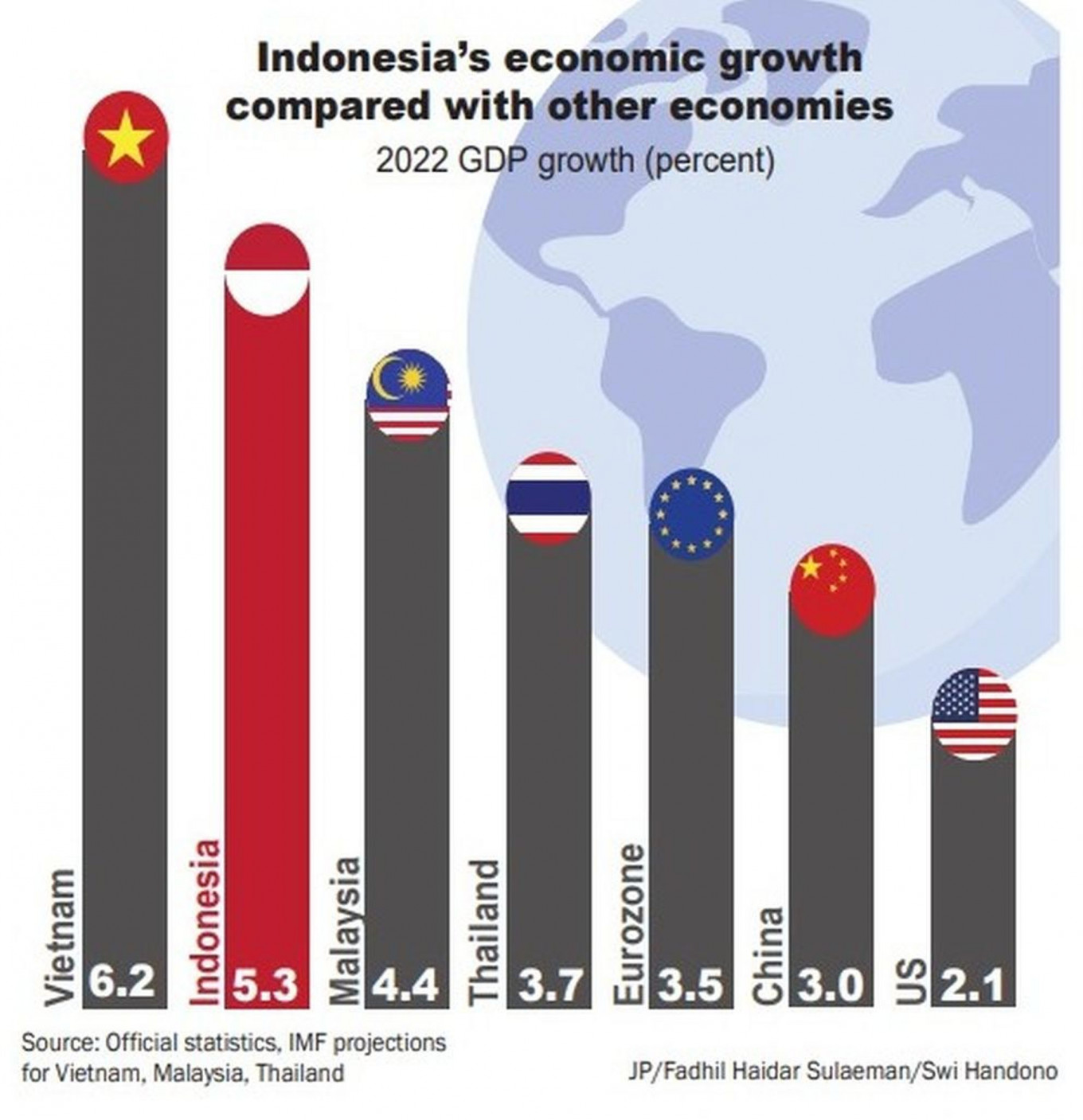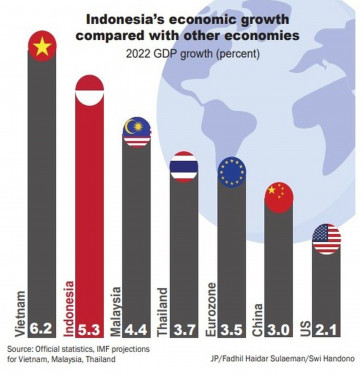Popular Reads
Top Results
Can't find what you're looking for?
View all search resultsPopular Reads
Top Results
Can't find what you're looking for?
View all search resultsThe need for bold economic reforms after 2024 election
The next government faces a major challenge in delivering economic reforms that address policies hampering growth and at the same time continue to drive the energy transition, all toward achieving Indonesia Gold 2024.
Change text size
Gift Premium Articles
to Anyone

The Indonesia Gold 2045 vision envisages the country becoming an advanced economy by 2045, when it marks the centenary of its independence.
The country’s economy has been growing annually at an average of 5 percent for the last two decades, but this has not been enough to help it become a high-income economy.
To break out of the 5 percent growth trap, the next government should make a policy breakthrough in initiatives and innovation to introduce bold fiscal and monetary policy reforms.
Since fiscal policy plays a prominent role in driving economic growth, the first challenge is to strengthen revenue mobilization. Although the government collected Rp 2.77 quadrillion (US$ 178.8 billion) in revenues in 2023, this amounted to merely 13 percent of gross domestic product (GDP), much lower than the average of 28 percent for emerging markets, 21 percent for emerging East Asian economies and 40 percent for advanced economies.
The second challenge is that as part of its measures to address climate change, Indonesia should manage its fiscal policy to achieve its energy transition target in 2030, including reducing carbon emissions by 31.9 percent and increasing the share of renewables in the national energy mix to 25 percent. It should start the shift from fossil fuel to green energy and execute the early retirement of coal-fired power plants.
The energy transition will entail high fiscal costs in several forms: It needs substantial capital investment in renewable energy infrastructure; it will entail costs associated with the premature closure of coal plants and the potential loss of jobs and income; it will potentially increase the cost of electricity generated from renewables. And it needs fiscal transfers and subsidies to groups affected by the energy transition.

The current fiscal policy remains conservative, with no major boost to spending despite relatively high revenues. Revenue collection has remained robust, supported by high commodity prices, although this windfall is subsiding. Yet this has not translated into any substantial increase in spending. In 2023, despite government revenue expanding 5.3 percent to Rp 2.77 quadrillion (US$177 billion), spending increased by only 0.8 percent after contracting 4 percent in November that year.


















